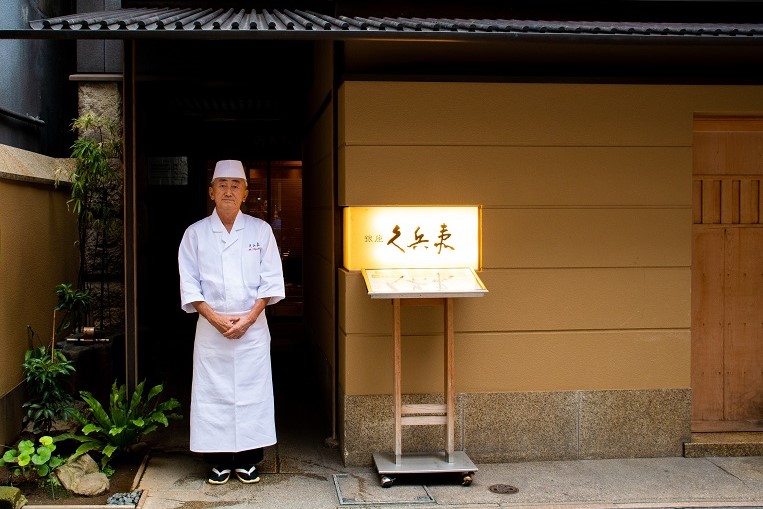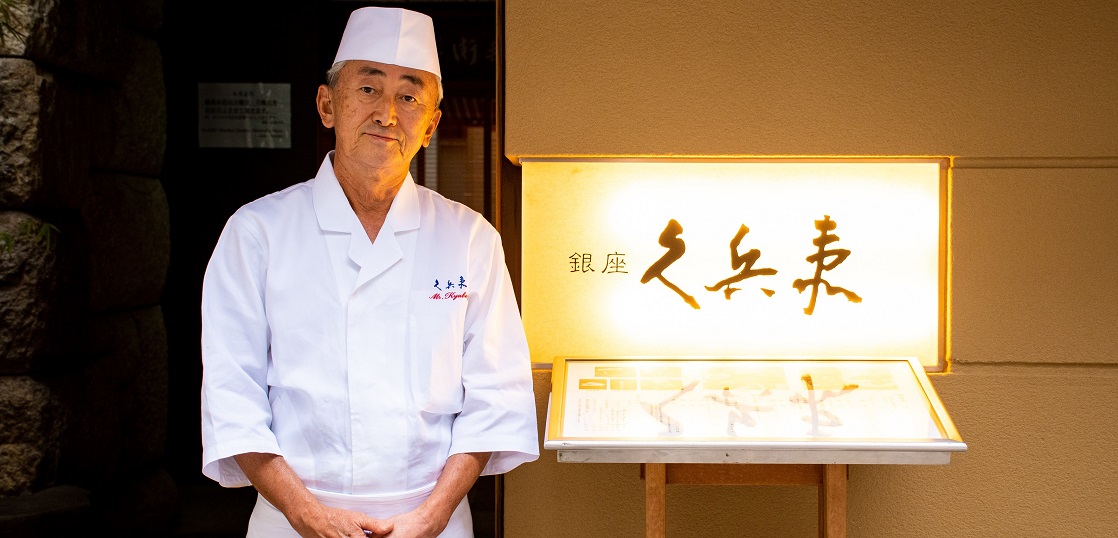Ginza "Kyubei" is one of Japan's leading sushi restaurants. Yosuke Imada, who conveys the charm of Edomae sushi as the second owner, says, "If the global environment continues to deteriorate, the" smart way of eating "sushi will be lost."
"The day when sushi disappears" is a collaboration between Kyubei and Euglena It's a project with a theme that envisions a future that Kyubei can never welcome, but why did Kyubei collaborate? He talked about the future of the global environment and his thoughts on sea creatures.
Kyubei x Euglena "Day when sushi disappears"
A project to consider the possibility that the habitat of fish will change due to the progress of global warming and the sushi ingredients will disappear. The last day you can eat each sushi ingredient is published on the special website, and you can reserve Ginza Kyubei on that last day. It started in time for the SDGs Week in 2019.
All fish may be farmed
―なぜ「寿司が消える日」という企画に興味を持ったのでしょうか。
Yosuke Imada (Imada): That's because we already consider global warming to be a serious problem. We too can be affected.
The Great Barrier Reef and coral reefs have been damaged in the South Sea. Even the waters near Japan. For example, when plants in the sea stop growing, there is no place for small fish to hide in peace. I am worried about what the environment will be like in 10 years.

Yosuke Imada (2nd owner of Ginza Kyubei)
From an early age, he grew up watching his predecessor hold sushi and naturally entered the world of sushi. After graduating from high school and studying at another store, he entered Ginza Kyubei in 1965. Since then, he has participated in management with his father, Toshiharu Imada. In 1985, he became the second master with the death of Mr. Toshiharu Imada. A craftsman who represents the world of sushi.
Looking back, Japan has long been thinking that the economy is of utmost importance. In the Showa era, pollution represented by Minamata disease became a problem, and it has polluted the sea since then. We want to stick to natural products, but in the future, all the fish may become aquaculture.
You can tell that you are holding tuna, but in aquaculture, fat drips from the fillet. I wonder if the cells are loose. In the case of natural products that continue to swim in the vast ocean, fat does not drip.
-Do you actually feel the change in fish at the market?
Imada: I don't feel it directly while walking in the market, but there are stories I hear from the people involved. I'm curious about shellfish. Many people are worried about the decrease in catch of ark shells, which are also popular at sushi restaurants.
Also, recently, "Pacific saury's poor catch" has become a hot topic. There may be various causal relationships, but we are also concerned about marine pollution caused by microplastics.

Individuals, companies, and nations must do their best
-If the catch decreases in the future due to changes in the global environment, what kind of impact will it have on the environment surrounding sushi?
Imada: You use fresh seafood not only for sushi, but for all Japanese food. Like meat in a steak shop, fish is the main ingredient in serving Japanese food. In the case of a steak shop, everything is steak from the first piece to the end, but sushi consists of at least 8 to 10 kinds of ingredients such as tuna, white meat, and shellfish.
The appeal of sushi is that you can choose what you like from these various ingredients. It is good to leave the course to the craftsmen, but the "smart way to eat" sushi is to choose the ingredients according to your taste and season and create your own course.
However, if you can't catch fish and prepare a variety of ingredients, you won't be able to eat this stylish way. Traditions that have been preserved for hundreds of years may be shaken.

-Sushi, which represents Japanese food, is very popular overseas. I think Mr. Imada has many opportunities to interact with customers from overseas, but do you feel a difference in awareness of the global environment between Japan and overseas?
Imada: I also hold sushi at parties where foreign dignitaries participate, but sometimes I'm required to use "sustainable seafood." There are many such gatherings overseas, which may be an opportunity to become interested in the global environment.

-I think that many people are interested in the environment in which marine life lives as a result of this project. Please give us a message from Mr. Imada.
Imada: I'm a stingy person, so I always say, "Don't waste water and electricity." However, from now on, I think we have to think more seriously about the global environment.
How to stop global warming and changes in the marine environment. Euglena is engaged in biofuel activities, each individual, each company, and each nation must do everything in their respective industries. That is our responsibility for the future. It would be great if we could bring new awareness through sushi.

* Honorific titles omitted in the text
Editing: Shinsuke Tada / Photo: Keita Shoko

